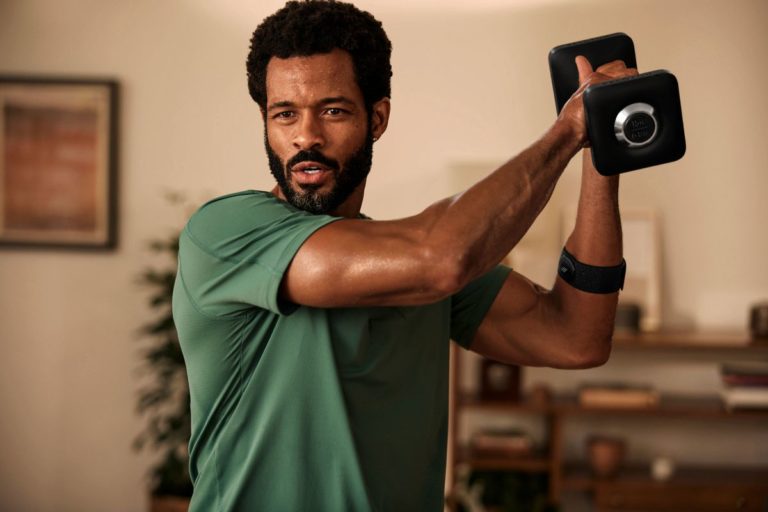Men’s health is getting a makeover.
What’s happening: Going beyond Mega Men multivitamins and maxing out on the bench press, a new wave of men’s wellness is focused on fertility tech, skincare, emotional fitness, and even makeup.
Why it matters: Younger generations are redefining masculinity, creating an opportunity for brands willing to innovate.
The big picture: While masculinity and self-care appear to sit at opposite ends of the spectrum, this perception is quickly becoming a false dichotomy. As the line between wellness and healthcare continues to blur, long-held stigmas are being erased. Free to pursue health on their own terms, guys are taking an expansive view of well-being.
Breakthrough Brands
With an emphasis on treating erectile dysfunction and baldness, startups like hims and Roman set the stage for this new era of men’s health. As pharmaceutical patents expired and telemedicine caught on, guys were able to get treatment for embarrassing ailments online. For the first time, the process was affordable, convenient, and discreet.
- The global market for ED drugs will exceed $5B in 2025.
- One in four men experience ED, but less than 15% get treatment.
- One in two men suffer from hair loss, but only 7% receive treatment.
Since 2017, Roman’s parent company Ro raised $200M to target men’s health issues among other verticals. Over the same period, hims & hers earned a $1B+ valuation for its telehealth platform. Speaking to Joe Vennare on the Fitt Insider podcast, hims & hers CEO Andrew Dudum said he believes the company could someday be worth as much $20B.
Building on the success of these breakthrough brands, countless others have taken aim at the category. While Keeps and Nutrafol focus exclusively on hair loss, Manual offers a variety of products for men across ED, hair loss, skincare, and supplements. Of note, Goop investor Felix Capital also backed Manual, hoping it follows a similar path.
Next up. Earlier this year, we said direct-to-consumer testosterone replacement therapy could be a billion-dollar business. From the look of things, Vault Health might prove us right. In March, the company raised $30M for its telemedicine service offering testosterone-focused treatments for men’s well-being.
It’s Personal
From razor blades to moisturizer and even face masks, made-for-men personal care is booming.
- 60% of men participate in self-care, according to a Miraval Group survey.
- The men’s personal care market is expected to reach $166B in 2022.
- US men spent nearly $6.8B on skincare products in 2018, reports Euromonitor.
Once, men’s grooming started and ended with shaving. Then came body spray, 3-in-1 shower gel, and “manscaping”. Now, the convergence of wellness with high-performance beauty has given rise to a host of new brands.
In 2018, ASYSTEM launched with $4M in funding for its skincare and vitamin lines. Referring to itself as a performance wellness company, BRAVO SIERRA has raised $18M for military-approved personal care products.
And the list goes on. While upstarts like Huron and Disco use clean ingredients and simple branding to deliver everyday skincare, Caldera + Lab and Maapilim are eyeing a premium market. Going a step further, Hawthorne raised $10M to develop personalized products using data-driven algorithms.
“There is significant opportunity in the men’s personal care category as men are increasingly taking more ownership of their shopping habits as well as their own personal routines.” – Kirsten Green, Forerunner Ventures
Surveying the landscape, the future of men’s personal care is still undefined. Looking ahead, men’s makeup and non-binary beauty are gaining steam.
According to a Morning Consult survey, 30% of Gen Z men were interested in or would consider using cosmetics. Similarly, in a Euromonitor survey, 56% of US male respondents used a facial cosmetic like foundation, concealer, or BB cream at least once in 2018.
Cashing in. Early-stage companies like War Paint and Shakeup Cosmetics have raised funding for their men’s makeup lines, as established brands like Fenty and Coty push further into the category.
Fertile Ground
In an article entitled The Women’s Health Revolution, we detailed the rise of female fertility startups. Increasingly, companies focused on men’s fertility are attracting attention and investment dollars.
- Globally, the male infertility market is expected to reach $5B by 2027.
- The global sperm bank market is set to exceed $5.4B by 2025.
- Sperm count of men in Western countries has dropped 50% since 1973.
A pair of companies launched around the same time are taking a similar approach to solve this issue. Founded in 2018, Legacy raised a $1.5M round for its sperm testing and freezing service. Then, in 2019, Dadi launched a mail-order fertility test and sperm storage service.
A word of caution: Citing price and convenience, both companies hope to disrupt traditional treatment options. But experts say mail-in kits cannot replace in-office visits. More telling, neither Dadi nor Legacy are able to provide what would be legally considered medical advice.
Looking ahead: Following the lead of primary care clinics like Parsley Health and Forward, as well as women’s health clinics like Tia, there’s an opening for men’s health clinics specializing in sperm testing, hormone treatments, prostate cancer, and more.
Of note, 40% of men wait until a symptom becomes unbearable before seeing a physician. In response, expect to see more startups combine telemedicine with in-person care to target men who avoid regular check-ups.
Takeaway
From looking, feeling, and performing better to actually preventing or treating illness, men’s health is taking on a whole new meaning. Learning from the leading companies in this space, redefining masculinity, eliminating stigma, and increasing access to care is key to seizing on this multi-billion dollar market.



